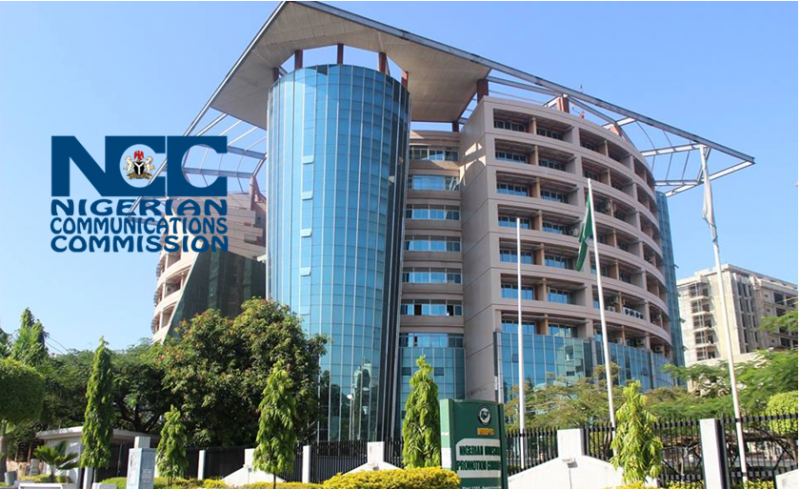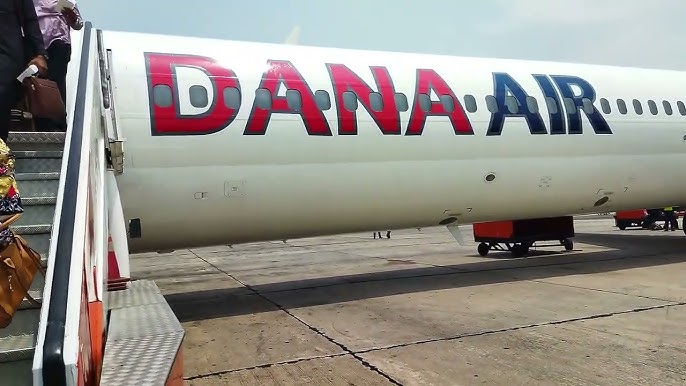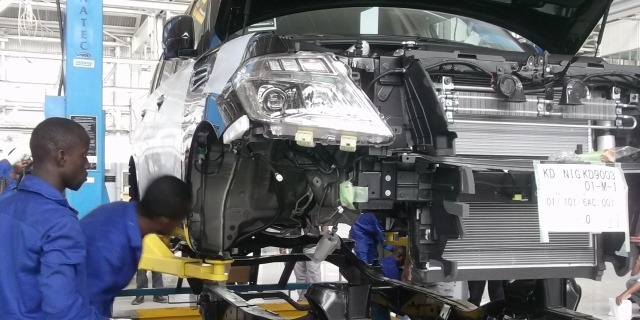Business
Again, NCC alerts of hacking group targeting Telcos, ISPs

The Nigerian Communication Commission has again notified the public of the existence of another hacking group orchestrating cyberespionage in the African telecoms space.
The commission in a statement said an Iranian hacking group was in the prowl to hack the telecoms sector on a massive level.
The statement titled, ‘Again, NCC alerts of hacking group targeting Telcos, ISPS’ and signed by NCC Director, Public Affairs, Dr Ikechukwu Adinde, read in full:
“In keeping with its commitment to continuously keep stakeholders in the country’s telecoms sector informed, educated and protected, the Nigerian Communications Commission (NCC) wishes to, once again, notify the public of the existence of another hacking group orchestrating cyberespionage in the African telecoms space.
READ ALSO:
- Hijab: Crisis looms in LAUTECH over alleged humiliation of student [VIDEO]
- Security forces flush out Biafra agitators from Bakassi
- N100m Gift: If You Have To Compel People To Celebrate You, You’re Nothing, Cynthia Morgan Tells Davido
“An Iranian hacking group known as Lyceum (also known as Hexane, Siamesekitten, or Spirlin) has been reported to be targeting telecoms, Internet Service Providers (ISPs) and Ministries of Foreign Affairs (MFA) in Africa with upgraded malware in a recent politically motivated attacks oriented in cyberespionage.
“Information about this cyber attack is contained in the latest advisory issued by the Nigerian Computer Emergency Response Team (ngCERT). The ngCERT rated the probability and damage level of the new malware as high.
“According to the advisory, the hacking group is known to be focused on infiltrating the networks of telecoms companies and ISPs. Between July and October, 2021, Lyceum was implicated in attacks against ISPs and telecoms organisations in Israel, Morocco, Tunisia, and Saudi Arabia.
“The advanced persistent threat (APT) group has been linked to campaigns that hit Middle Eastern oil and gas companies in the past. Now, the group appears to have expanded its focus to the technology sector. In addition, the APT is responsible for a campaign against an unnamed African government’s Ministry of Foreign Affairs.
“By the attackers’ mode of operation, Lyceum’s initial onslaught vectors include credential stuffing and brute-force attacks. So, once a victim’s system is compromised, the attackers conduct surveillance on specific targets. In that mode, Lyceum will attempt to deploy two different kinds of malware: Shark and Milan (known together as James).
READ ALSO:
- More Nigerian youths are committing suicide, lawmakers lament
- Eight killed, vehicles burnt as speeding tanker, truck collide in Ogun
- Train services suspended as railway workers down tools
- Eto’o Submits Candidacy For Cameroon FA Presidency
“Both malware are backdoors. Shark, a 32-bit executable written in C# and .NET, generates a configuration file for domain name system (DNS) tunneling or Hypertext Transfer Protocol (HTTP) C2 communications; whereas Milan – a 32-bit Remote Access Trojan (RAT) retrieves data.
“Both are able to communicate with the group’s command-and-control (C2) servers. The APT maintains a C2 server network that connects to the group’s backdoors, consisting of over 20 domains, including six that were previously not associated with the threat actors.
“According to reports, individual accounts at companies of interest are usually targeted, and then once these accounts are breached, they are used as a springboard to launch spear-phishing attacks against high-profile executives in an organization. The report suggests that not only do these attackers seek out data on subscribers and connected third-party companies, but once compromised, threat actors or their sponsors can also use these industries to surveil individuals of interest.
“However, to guard against this kind of threats, the NCC wishes to re-echo ngCERT reports that multiple layers of security in addition to constant network monitoring is required by telecom companies and ISPs alike to stave off potential attacks.
“Specifically, telecom consumers and the general public are advised to:
- Ensure the consistent use of firewalls (software, hardware and cloud firewalls).
- Enable a Web Application Firewall to help detect and prevent attacks coming from web applications by inspecting HTTP traffic.
- Install Up-to-date antivirus programmes to help detect and prevent a wide range of malware, trojans, and viruses, which APT hackers will use to exploit your system.
- Implement the use of Intrusion Prevention Systems that monitors your network.
- Create a secure sandboxing environment that allows you to open and run untrusted programs or codes without risking harm to your operating system.
- Ensure the use of virtual private network (VPN) to prevent an easy opportunity for APT hackers to gain initial access to your company’s network.
- Enable spam and malware protection for your email applications, and educate your employees on how to identify potentially malicious emails.
For further technical assistance, contact ngCERT on incident@cert.gov.ng.
“The NCC, as the operator of the telecom sector’s cyber threat response centre (CSIRT), hereby reiterates its commitment active surveillance and monitoring of cyber activities in the sector and will always keep stakeholders in Nigeria’s telecommunications sector updated on potential threats within the cyber space. This is to ensure that the networks that deliver essential services are safe and that telecom consumers are protected from being victims of cyber attacks.”
The Eagle
Aviation
FG suspends Dana Air for comprehensive audit

FG suspends Dana Air for comprehensive audit
The Federal Ministry of Aviation and Aerospace Development has ordered the suspension of Dana Air flight operations.
This came about 24 hours after the airline’s runway excursion incident at the Murtala Muhammed International Airport in Lagos.
The directive was passed on Wednesday to the Nigerian Civil Aviation Authority to be effected.
A letter signed by the ministry’s Permanent Secretary, Dr Emmanuel Meribole, addressed to the NCAA said recent incidents involving Dana Air had raised concerns about the safety and financial viability of the airline’s operations.
It said the suspension would not be lifted until comprehensive audits on the Dana Air’s fleet had been conducted.
It stated that the audit would include safety protocols, maintenance procedures and financial health.
It stressed that the move to suspend the airline was aimed at ensuring the safety and well-being of Nigerians.
The statement reads, “As the supervisor overseeing our nation’s aviation safety and regulatory compliance, it has come to the Honourable Minister’s attention that recent incidents involving Dana Airline have raised serious concerns regarding both the safety and financial viability of their operations.
“In light of these incidents and with the paramount priority being the safety and well-being of our citizens and travelers, the Honourable Minister has directed that you immediately initiate the suspension of Dana Airline’s fleet until a comprehensive audit can be conducted. This audit should encompass all aspects of safety protocols, maintenance procedures, and financial health to ensure full compliance with our aviation regulations.
“The recent incidents have underscored the urgency of this matter, and it is imperative that swift and decisive action be taken to safeguard the interests of all stakeholders involved.”
Auto
African automakers, minister, NADDC DG for June 27 Nigeria industry summit

African automakers, minister, NADDC DG for June 27 Nigeria industry summit
A delegation of the African Association of Automotive Manufacturers (AAAM) from South Africa is expected in Nigeria on June 27 this year to attend the maiden edition of the Nigeria Auto Industry Summit (NAISU).
The team will be joined by the Nigeria Association of Automotive Manufacturers (NAMA) team and other leading stakeholders to brainstorm on the sector’s development in the country and by extension Africa.
The organisers of the event, Nigeria Auto Journalists Association (NAJA), disclosed this in a statement, adding that it would be organised in partnership with the National Automotive Design and Development Council (NADDC).
Scheduled to hold at Radisson Hotel, Ikeja, Lagos, on Thursday, June 27th, 2024, the summit is envisioned as an annual flagship event of the country’s automotive industry to rally all stakeholders together to explore the great potential in the automotive sector for national development.
It said the maiden edition of the event would be declared open by the Minister of Industries, Trade and investment, Dr Doris Uzoka-Anite, under the theme ‘Reviving Nigeria’s Economy through the Automotive Sector’ .
It would have the NADDC Director General, Mr. Joseph Osannipin, as the chief host, it stated.
Commenting on the importance of the summit for the development of the country’s automotive sector, Chairman, organizing committee of NAISU, Femi Owoeye, said, “Initiating this summit is vital, especially at this moment in history, when Nigeria is struggling to map its way out of the prevailing global economic despair.
“Being one of the drivers of the global economy, the automobile industry, if given the necessary impetus in Nigeria, is capable of transforming the country to an automotive manufacturing hub in Africa.
“To this end, Nigeria Auto Industry Summit shall annually produce significant information that would help the government to make it happen.”
On his part, Chairman of NAJA, Mike Ochonma, said, “Significantly, the summit shall bridge the information and communication gap between the nation’s auto industry stakeholders and relevant government agencies.
“Moreover, annually, the summit shall give a single and united voice for the auto industry leaders to set developmental agenda aimed at kick-starting and driving relevant government policies towards a sustainable development of the automotive industry in Nigeria and ultimately position the country as a frontline beneficiary of the African Free Trade Agreement Area.”
Business
CBN releases more dollars as naira weakens to 1,300/$

CBN releases more dollars as naira weakens to 1,300/$
The naira depreciated further against the United States dollar at the official market on Tuesday, closing at 1,300/$.
This came as the Central Bank of Nigeria stepped up efforts to stem the tide, selling more dollars to Bureau De Change operators.
The apex bank disclosed the dollar sale in a new circular referenced TEM/FEM/PUB/001/013 and uploaded to its website on Tuesday.
It was signed by the CBN Director, Trade and Exchange Department Dr Hassan Mahmud.
The apex bank said it was set to sell $10,000 to BDCs at N1,021 per dollar and directed the operators to sell at a spread not more than 1.5 per cent above the CBN rate.
Amid the development, the naira maintained a depreciation trend against the United States dollar on Tuesday, falling to N1,300 per dollar at the Nigerian Autonomous Foreign Exchange Market.
The new rate is N66 per cent weaker than N1,234 per dollar recorded on Monday.
A summary of the forex transaction showed that the intra-day high depreciated by N22, closing at N1,317 per dollar from N1,295 per dollar. The intra-day low however gained to N1,000 from N1,051/$.
READ ALSO:
- Large-scale earthquake hits Taiwan
- ‘Tiwa Savage paid IT expert to wipe sextape off internet’
- Senate backs education minister over 18-year entry age into varsities
While the total daily turnover increased slightly to $133.65m from $110.17m on Monday.
At the parallel market, currency traders sold the dollar between the rate of N1,300 and N1,320 on Tuesday from N1,260 recorded on Monday.
Earlier this month, the apex bank sold $10,000 to BDCs at a rate of N1101/$ and directed the BDCs to sell to eligible customers at a rate not exceeding 1.5 per cent above the purchase price.
This initiative represents the second such occurrence this month and the fourth instance this year, underlining the CBN’s proactive strategy in managing currency volatility and ensuring the availability of essential foreign exchange.
The PUNCH reported on Monday that the Naira depreciated against the United States dollar reaching an exchange rate of N1,234 at the official foreign exchange market. This represents a decline of N65 or approximately 5.26 per cent from the previous rate of N1,169.99/$1 recorded on Friday. The fluctuation in exchange rates can have significant implications for trade and economic stability.
The statement read, “We write to inform you of the sale of $10,000 by the CBN to BDCs at the rate of 1,021/$. The BDCs are in turn to sell to eligible end users at a spread not more than 1.5 per cent of the purchase price.”
This recent move follows the CBN’s resolve to continue to defend the naira as stated by the bank earlier.
The CBN directed all eligible BDCs to commence payment of naira deposit into the designated CBN accounts from April 22, 2024.
It also asked the operators to submit proof of payment and other documents at the appropriate CBN branches for disbursement.
CBN releases more dollars as naira weakens to 1,300/$
-

 Education4 days ago
Education4 days agoWhy we charge N42m fees for primary school pupils — Charterhouse Lagos
-

 News6 days ago
News6 days agoUpdated: More trouble for Yahaya Bello as Immigration places him on watch list
-

 Auto4 days ago
Auto4 days agoWe expect massive roll-outs of Nigeria-made cars by December 2024 – Minister
-

 International6 days ago
International6 days agoUpdated: Tragedy hits Kenya, Defence chief, nine others die in military helicopter crash
-

 metro4 days ago
metro4 days agoJUST IN : Borrow pit collapses, kills seven Qur’anic school pupils
-

 News4 days ago
News4 days agoWe’re not part of Yoruba Nation agitation, says MKO Abiola family
-

 metro2 days ago
metro2 days agoHow gunmen killed Babcock university lecturer, abducted two – Police
-

 News7 days ago
News7 days agoYahaya Bello: EFCC warns against obstruction of operations




















